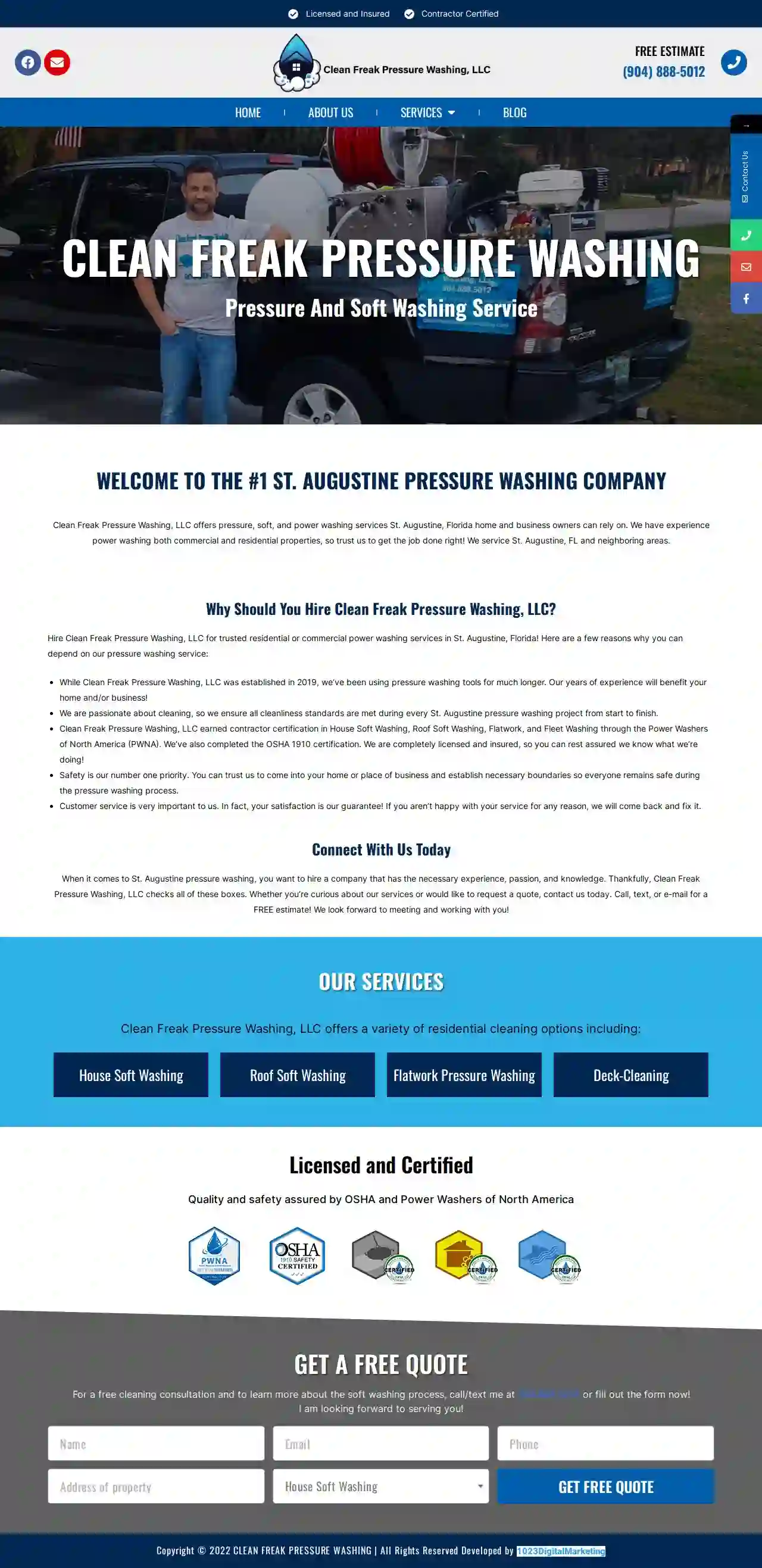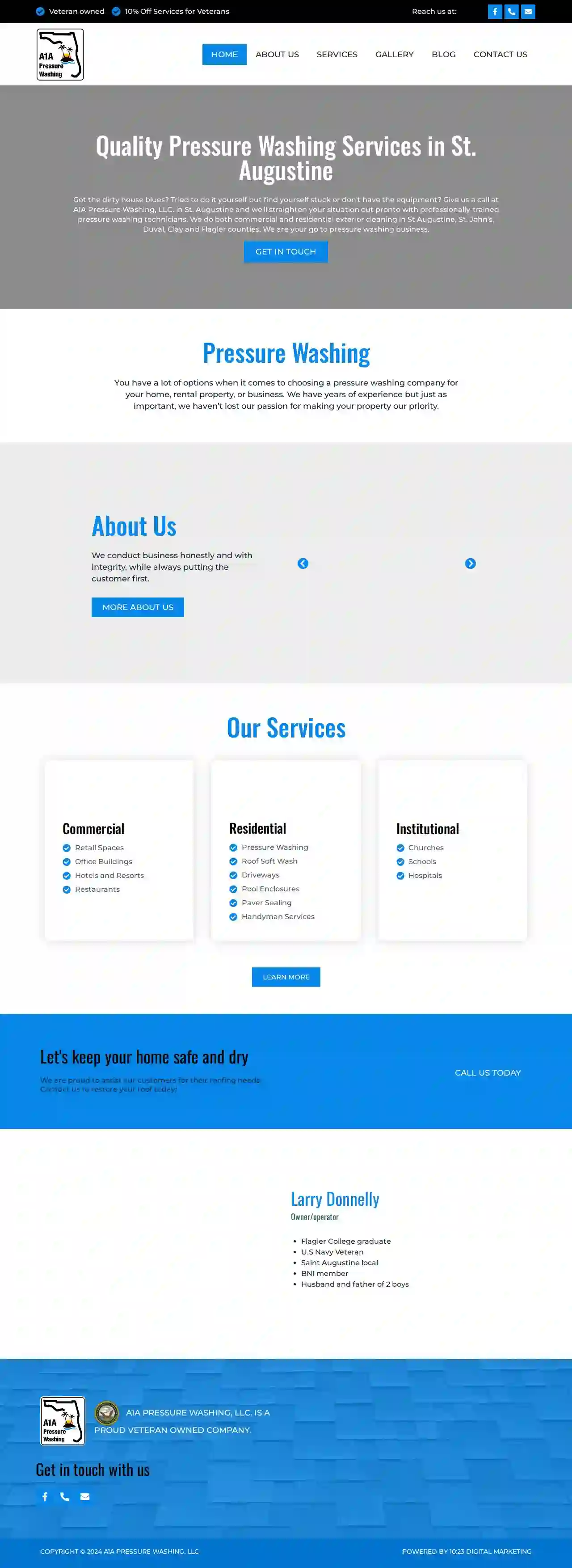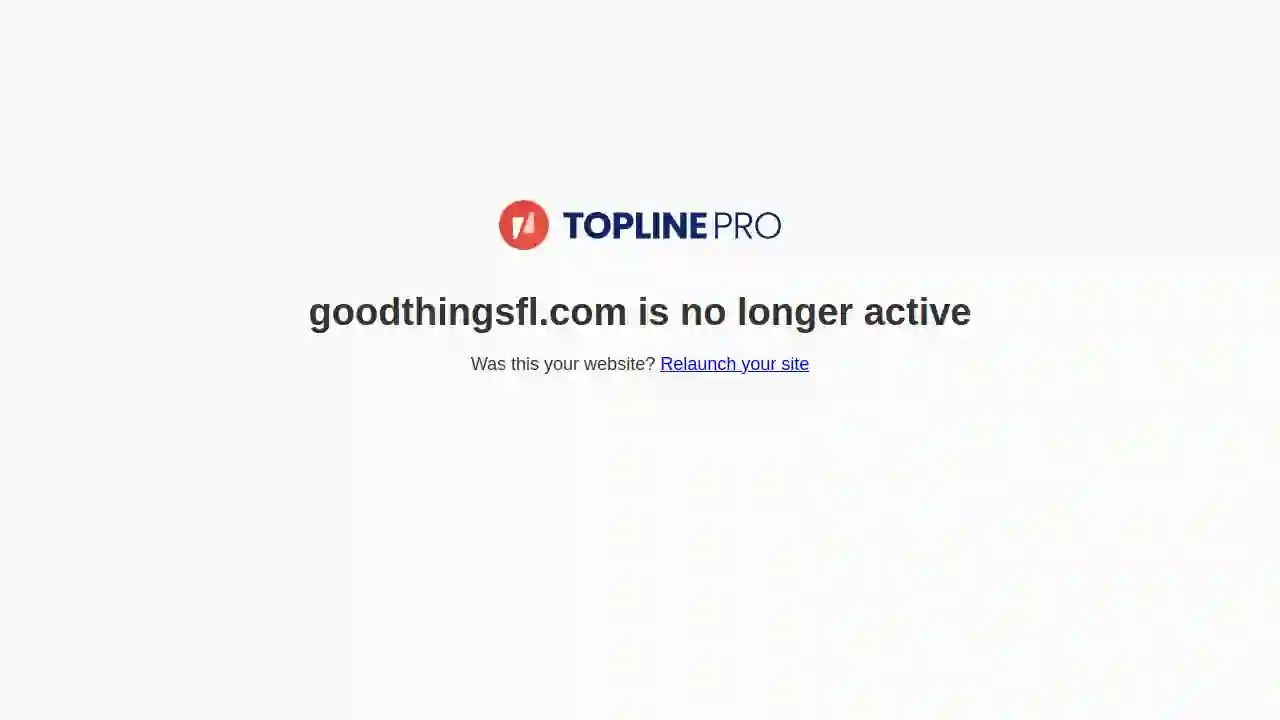Pressure Washing Samoset
Find Pressure Washing in Samoset
Receive up to 3 Driveway Cleaning quotes for your project today! Compare profiles, reviews, accreditations, portfolio, etc... and choose the best service.

Honorable Pressure Washing
59 reviews1684 Beechwood Drive, Gulf Breeze, 32563, USHonorable Pressure Washing is your trusted source for professional exterior cleaning services in Gulf Breeze. We specialize in roof cleaning, house washing, and a range of other pressure washing solutions that enhance the beauty and longevity of your property. At Honorable Pressure Washing, we're your local partner in maintaining the beauty and value of your property. With a commitment to excellence and customer satisfaction, we offer a wide range of services designed to meet your unique exterior cleaning needs. Our mission is to restore the beauty and integrity of properties. Choosing a local pressure washing company means you're not just hiring a service provider. You're partnering with a team that genuinely cares about the well-being of your property and the aesthetics of our shared community. We strive to provide exceptional pressure washing services that exceed our clients' expectations. We believe that a clean and well-maintained exterior not only enhances the aesthetics of a property but also contributes to its overall health and longevity. As a local Gulf Breeze pressure washing company, we understand the unique challenges posed by the coastal environment. Our team is experienced in dealing with the effects of salt, sand, and humidity on various surfaces. We tailor our services to meet the specific needs of our community, ensuring that every property we work on receives the best care possible. What sets Honorable Pressure Washing apart is our commitment to excellence, integrity, and customer satisfaction. We don't just focus on providing outstanding results; we prioritize building lasting relationships with our clients.
- Services
- Why Us?
- Gallery
Get Quote
The Pressure Pro LLC
521 reviewsNot Found, USThe Pressure Pro is committed to partnering with the residents and businesses of Fort Lauderdale to create a cleaner, brighter city through affordable, high-quality pressure washing services. We believe a beautiful and well-maintained community fosters a sense of pride and well-being for everyone.
- Services
- Why Us?
- Accreditations
- Our Team
- Testimonials
- Gallery
Get Quote
Precision ProWash of Miami
518 reviews123 Main St, Suite 100, Miami, 33101, USPrecision Pro Wash is one of Miami’s top exterior cleaning companies specializing in pressure washing, soft washing, gutter cleaning and commercial power washing services. Our goal is to provide a “cleaning experience” from start to finish. We guarantee your satisfaction.
- Services
- Why Us?
- Accreditations
- Our Team
- Testimonials
- Gallery
Get Quote
Clean Freak Pressure Washing, LLC
535 reviewsSt. Augustine, Florida, 32084, USClean Freak Pressure Washing, LLC offers pressure, soft, and power washing services St. Augustine, Florida home and business owners can rely on. We have experience power washing both commercial and residential properties, so trust us to get the job done right! We service St. Augustine, FL and neighboring areas.
- Services
- Why Us?
- Accreditations
- Gallery
Get Quote
A1A Pressure Washing, LLC.
543 reviewsPalm Coast, USA1A Pressure Washing, LLC is a veteran-owned company that provides quality pressure washing services in St. Augustine, St. John's, Duval, Clay, and Flagler counties. We have years of experience and a passion for making your property our priority. Our services include commercial and residential exterior cleaning, roof soft wash, driveways, pool enclosures, paver sealing, and handyman services. We are proud to assist our customers with their roofing needs and offer a 10% discount for veterans. Our team is led by Larry Donnelly, a Flagler College graduate, U.S. Navy Veteran, and Saint Augustine local. We are a member of BNI and are committed to conducting business honestly and with integrity, always putting the customer first.
- Services
- Why Us?
- Our Team
- Testimonials
- Gallery
Get Quote
Exterior House Wash Services
5182 reviews2873 Club Cortile Cir, Kissimmee, 34746, USExterior House Wash Services is a licensed and insured business that provides 5-Star Services provider in Central Florida to clean anything pertaining to your home or business. Soft Wash Roof Cleaning | House Wash | Concrete Driveway & Paver Cleaning | Wood Cleaning Restoration | Pool Deck & Screen Enclosure | Boat dock Cleaning | Awnings | Windows | & MORE! We cover all Central Florida and counties nearby. Residential & Commercial. Call us NOW for a FREE estimate: (321) 626-5488 Thank you in advance for trusting us to take care of your property! Call TodayOur Core ValuesOur team creates and provides one of the best customer service experience possible for our clients. We are a professional transparent team with years of experience that collaborates with the client in ensuring to provide an excellence service they would expect to receive.Call now to get a free estimate in One hour Call TodayCall us for Roof Cleaning, Exterior House Washing, Power wash in Orlando, Seminole County and the surrounding areas in Florida.6 month Satisfaction Guarantee. If there is any issues, we will return for FREE.
- Services
- Why Us?
- Our Team
- Gallery
Get Quote
Pyramid Detail Pressure Washing
515 reviewsKissimmee, USPyramid Detail Pressure Washing is a privately owned and run company serving the local Kissimmee and Orlando areas in sunny Florida. It takes hard and consistent work to own your own home and properties. Keeping them well-maintained and looking new ensures you enjoy your investments for many years to come. With an eye for detail, you can be sure your valuable investment will be well-taken care of and with a neighborly, personal feel leaving your property looking great all year long. - Pyramid Detail Pressure Washing
- Services
- Why Us?
- Gallery
Get Quote
Pivotal Pressure Cleaning & Paver Sealing
526 reviewsFort Lauderdale, USPivotal Pressure Cleaning is a leading provider of professional pressure washing services in Broward County, Florida. We specialize in restoring the original charm of your home or business's exterior surfaces using commercial-grade pressure washers and a team of experienced professionals. Our services include low-pressure roof cleaning, window cleaning, paver sealing, house washing, roof cleaning, window cleaning, gutter cleaning, paver sealing, driveway cleaning, rust removal, and concrete sealing. We also offer a range of commercial pressure washing services, such as building washing, storefront cleaning, parking lot and garage cleaning, exterior cleaning for apartment complexes, awning cleaning, gas station cleaning, post-construction clean up, and fleet washing. We are fully insured and licensed, and we guarantee 100% customer satisfaction.
- Services
- Why Us?
- Gallery
Get Quote
Pressure Washing of Good Things LLC.
54 reviewsNavarre, USGood Things FL is a locally owned and operated business serving the greater Orlando area. We specialize in providing high-quality, personalized service to our clients. Our team of experienced professionals is dedicated to helping you achieve your goals.
- Services
- Why Us?
- Gallery
Get Quote
Quality Auto Care and Pressure Washing
517 reviews2665 South Bayshore Drive, Miami, 33133, USQUALITY AUTO CARE & Pressure washing Miami's #1 Mobile Luxury Automotive Detailer and Pressure Cleaning Service Our Services We offer a variety of automotive, boat, motorcycle, and large truck detailing services to the Miami area. From hand exterior washes to interior detailing and paint correction. Our team is dedicated to providing the best possible results to ensure complete satisfaction. We also offer our Fleet Maintenance Program to keep your business looking fresh! Interior Cleaning Exterior Cleaning Wheels & Tires Paint Correction Boat Detailing Motorcycle Detailing Food Truck Detailing Aircraft Detailing Fleet Maintenance 5-step paint correctionpackages Call to customize your own! *Prices may vary depending on the size of your vehicle. Large trucks/SUVs will demand a premium. Contact us for a quote today!* Book an Appointment Miami's Best At Quality Auto Care, our mission is to provide the highest quality mobile auto detailing services to all types of cars while also prioritizing the environment. We use eco-friendly products and techniques to ensure that our impact on the planet is minimized. Contact Us Quality Auto Care 2665 South Bayshore Drive, Miami, Florida 33133, United States (305) 804-5181 Please give us a call or email us to book an appointment! Contact Us!
- Services
- Why Us?
- Our Team
- Gallery
Get Quote
Over 60,241+ Janitorial Contractors on our platform
Our cleaning service providers operate in Samoset & surrounding areas!
CleaningMatch has curated and vetted the Best Cleaning Businesses arround Samoset. Find a top & reliable contractor today.
Frequently Asked Questions About Pressure Washing
- Enhanced Curb Appeal: Pressure washing removes dirt, grime, and stains, instantly revitalizing the appearance of your property and boosting curb appeal.
- Improved Health and Safety: Pressure washing removes mold, mildew, algae, and other contaminants that can pose health risks and create slippery surfaces.
- Increased Property Value: A well-maintained exterior, achieved through regular pressure washing, can increase the value of your property.
- Preventative Maintenance: Pressure washing removes dirt and grime that can deteriorate surfaces over time, extending the lifespan of your driveway, deck, fence, and other exterior features.
- Preparation for Painting or Staining: Pressure washing is an essential step before painting or staining, as it provides a clean and receptive surface for the new coating to adhere to.
- Reputation and Reviews: Check online reviews and ask for referrals to gauge the company's reputation and customer satisfaction.
- Experience and Expertise: Look for a company with a proven track record and experience in pressure washing various surfaces.
- Licensing and Insurance: Ensure the company is licensed and insured to protect you from liability.
- Equipment and Techniques: Inquire about the company's equipment and techniques to ensure they use appropriate pressure levels and cleaning solutions.
- Quotes and Pricing: Obtain detailed quotes that outline all services and costs.
- Professionalism and Communication: Choose a company that is responsive, communicative, and professional.
- Soft Washing: Soft washing is generally recommended for wood decks as it uses lower pressure and specialized cleaning solutions to safely remove dirt, mildew, and algae without causing damage.
- Lower Pressure Setting: If using a pressure washer on a wood deck, use a lower pressure setting (around 1500 PSI) and a wide-angle nozzle (25-40 degrees).
- Maintain Distance: Hold the nozzle at least 12 inches away from the deck surface to prevent etching or splintering.
- Professional Pressure Washing: If you're unsure about pressure washing your deck safely, hire a professional pressure washing company with experience in cleaning wood surfaces.
What are the benefits of pressure washing?
Whether you're looking to improve your property's appearance, protect its value, or enhance health and safety, pressure washing is a valuable investment.
What should I look for in a pressure washing company?
A reputable pressure washing company will prioritize safety, use appropriate cleaning methods, and provide excellent customer service.
What is the difference between pressure washing and soft washing?
Pressure washing uses high-pressure water spray to blast away dirt, grime, and other stubborn contaminants from hard surfaces. It's effective for cleaning driveways, decks, patios, fences, and siding.
Soft washing utilizes low-pressure water combined with specialized cleaning solutions to gently remove dirt, mold, mildew, and algae from delicate surfaces like roofs, siding, and painted surfaces. Soft washing is less abrasive than pressure washing, preventing damage to sensitive materials.
Choosing the appropriate cleaning method depends on the type of surface, its condition, and the desired cleaning outcome. Consult with a professional pressure washing company to determine the best approach for your specific needs.
Can pressure washing damage my deck?
By using the right cleaning method and precautions, you can effectively clean your wood deck without causing damage and prolong its lifespan.
What are the benefits of pressure washing?
- Enhanced Curb Appeal: Pressure washing removes dirt, grime, and stains, instantly revitalizing the appearance of your property and boosting curb appeal.
- Improved Health and Safety: Pressure washing removes mold, mildew, algae, and other contaminants that can pose health risks and create slippery surfaces.
- Increased Property Value: A well-maintained exterior, achieved through regular pressure washing, can increase the value of your property.
- Preventative Maintenance: Pressure washing removes dirt and grime that can deteriorate surfaces over time, extending the lifespan of your driveway, deck, fence, and other exterior features.
- Preparation for Painting or Staining: Pressure washing is an essential step before painting or staining, as it provides a clean and receptive surface for the new coating to adhere to.
Whether you're looking to improve your property's appearance, protect its value, or enhance health and safety, pressure washing is a valuable investment.
What should I look for in a pressure washing company?
- Reputation and Reviews: Check online reviews and ask for referrals to gauge the company's reputation and customer satisfaction.
- Experience and Expertise: Look for a company with a proven track record and experience in pressure washing various surfaces.
- Licensing and Insurance: Ensure the company is licensed and insured to protect you from liability.
- Equipment and Techniques: Inquire about the company's equipment and techniques to ensure they use appropriate pressure levels and cleaning solutions.
- Quotes and Pricing: Obtain detailed quotes that outline all services and costs.
- Professionalism and Communication: Choose a company that is responsive, communicative, and professional.
A reputable pressure washing company will prioritize safety, use appropriate cleaning methods, and provide excellent customer service.
What is the difference between pressure washing and soft washing?
Pressure washing uses high-pressure water spray to blast away dirt, grime, and other stubborn contaminants from hard surfaces. It's effective for cleaning driveways, decks, patios, fences, and siding.
Soft washing utilizes low-pressure water combined with specialized cleaning solutions to gently remove dirt, mold, mildew, and algae from delicate surfaces like roofs, siding, and painted surfaces. Soft washing is less abrasive than pressure washing, preventing damage to sensitive materials.
Choosing the appropriate cleaning method depends on the type of surface, its condition, and the desired cleaning outcome. Consult with a professional pressure washing company to determine the best approach for your specific needs.
Can pressure washing damage my deck?
- Soft Washing: Soft washing is generally recommended for wood decks as it uses lower pressure and specialized cleaning solutions to safely remove dirt, mildew, and algae without causing damage.
- Lower Pressure Setting: If using a pressure washer on a wood deck, use a lower pressure setting (around 1500 PSI) and a wide-angle nozzle (25-40 degrees).
- Maintain Distance: Hold the nozzle at least 12 inches away from the deck surface to prevent etching or splintering.
- Professional Pressure Washing: If you're unsure about pressure washing your deck safely, hire a professional pressure washing company with experience in cleaning wood surfaces.
By using the right cleaning method and precautions, you can effectively clean your wood deck without causing damage and prolong its lifespan.